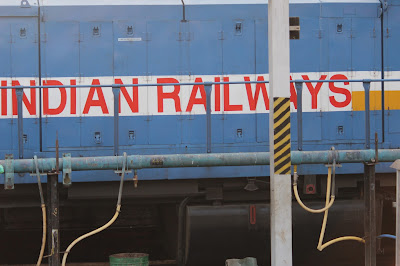If
someone says that he/she is working in Mumbai while staying at Chennai, then it
will not be any surprise to you once Hyperloop is constructed in India.
·
HYPERLOOP is a high-speed mode of transport in which a pod-like
vehicle is accelerated in a tube with the help of reduced pressure and magnetic
levitation concepts. It can reach a speed of 760 mph (1200 kmph) with a
much lesser ticket costs.
·
This concept of Hyperloop was proposed by Elon Musk,
the 21st century’s Innovator, CEO of SpaceX, Tesla, back in 2012. In
August, 2013 SpaceX published the HYPERLOOP Alpha version and encouraged
the engineers and designers all over the world to contribute to HYPERLOOP
design process.
 |
| image: MIT Hyperloop |
II)
THE PAST
·
Although, HYPERLOOP is an amazing concept, it is not new. As
this concept has been around for over 100 years. The first efforts of low
pressure tube travel were made in 18th century.
·
In 1799, George Medhurst of London discussed the idea
of moving goods pneumatically through cast iron pipes and in 1812, he proposed
blowing passenger carriages through a tunnel. But, he never patented his ideas
and they were not taken further.
·
Later during 1864, an atmospheric railway was ran in crystal
palace park in South London which was called crystal Palace Pneumatic Railway.
It was operated for just over 2 months.
·
In 1869, a small Pneumatic subway line was opened by name
Beach Pneumatic Transit in New York City and lasted until 1873.
·
After that, early in 1900’s professor Boris Weinberg, a
Russian mechanical engineer offered a vactrain (Vacuum Tube Train) concept in
the book “Motion without Friction”.
·
Even the rocket scientist, Robert Goddard written about tube
travel system in a 1909 issue of Scientific American and also he had worked on
several tube train patents.
·
Later on many scientists and Engineers had worked on similar
concepts like Gravitrains, Planetran etc
III)
THE PRESENT
·
Coming to the present “HYPERLOOP Technology”, few companies
have been formed like HYPERLOOP One and HYPERLOOP transportation Technologies
(HTT) to develop and construct the Hyperloop.
·
HYPERLOOP One is currently building DevLoop which is a
test track of HYPERLOOP, in Nevada and HYPERLOOP One Global Challenge is a
competition conducted by HYPERLOOP One inviting teams around the planet to
actualise the potential of the system in different regions. Of 2600 teams,
it has finalised 35 teams of which 5 routes are from India.
·
On the other hand, SpaceX held a HYPERLOOP pod Competition at
its HYPERLOOP test track “HYPERTUBE” which is approximately 1 mile in length at
its Headquarters in California. It is to help accelerate the development of
functional prototypes. Of 27 teams which brought their HYPERLOOP Pods, 3
were selected and tested which are made by teams from MIT, Delft
University, and Technical University of Munich.
IV)
THE FUTURE
·
So, the question is……Is HYPERLOOP the future of
transportation?
·
If we consider a country like India, there is a great need
for such low-cost, High-Speed Transit system. Considering all circumstances
like the HYPERLOOP was still in testing and designing stage, letting it to
develop and implement completely and in a country like India, where almost
every major project faces problems like Land Acquisitions, Delays etc., also
considering the difficulties faced to construct the tube system by accounting
safety and speed, it is better to improve existing infrastructure of Indian
transportation like Indian Railways, which is one of the largest railway
networks carrying about 8.5 billion passengers annually.
 |
| image: CS |
So,
despite its advantages of Super speeds and lower costs of travel, it is better
to concentrate on improving existing infrastructure in a country like India for
time being until the HYPERLOOP is fully designed, tested and implemented. Let
us hope very soon HYPERLOOP will take shape and revolutionize the way we
travel.